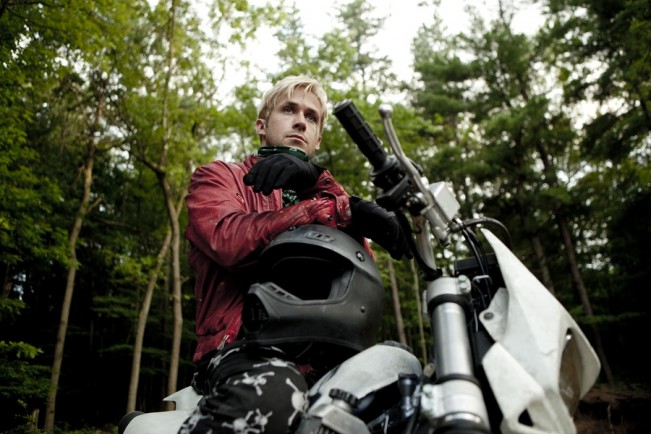By Jake Howell jake.howell@utoronto.ca
The Torontonian Reviews: The Place Beyond the Pines
 I hadn’t heard of Derek Cianfrance before his impressive 2010 heartbreaker Blue Valentine, but I’m glad that I know him now. 2012’s The Place Beyond the Pines proves the director is no flukester, and that Cianfrance has a brilliant mind for domestic stories with a strong vision on how to tell them.
I hadn’t heard of Derek Cianfrance before his impressive 2010 heartbreaker Blue Valentine, but I’m glad that I know him now. 2012’s The Place Beyond the Pines proves the director is no flukester, and that Cianfrance has a brilliant mind for domestic stories with a strong vision on how to tell them.
Certainly, Cianfrance’s direction is confident; on par with contemporary filmmakers who have been working for decades. But the writing of Pines is really the star of the show. How I wish I could spin such natural webs of dialogue! Cianfrance makes it look effortless, really; not a single line sounds forced or out of place. In truth, this is an aspect of filmmaking that seems to be growing rarer and rarer, making The Place Beyond the Pines a gift for serious fans of drama.
There are several moments in Pines which could have gone horribly wrong, but they never do. Not figuratively, anyhow. I must admit it is genuinely surprising to see a film tease you with how it could fail; how it could go off the rails with absurdities and unjustified motivations… but doesn’t. The Place Beyond the Pines simply doesn’t lose its balance, and I would attribute this to the fact that Cianfrance understands (and deeply respects) the potential of audience imagination. The journeys his characters take have many roads; often winding and twisting to volatile scenarios that could end in a dozen different conclusions. These characters flirt with disasters of melodrama, but Cianfrance’s steady script resists the temptation to cop out, rejecting stupidity outright. As a result, Pines is a taunting, haunting film.
The Place Beyond the Pines is, in essence, a triptych: Cianfrance showcases three separate characters who are given the same length of screen time. Each character is independently balanced and equally important, and in many ways Pines feels like an HBO miniseries. Going with this analogy, the first “episode” begins with Ryan Gosling’s “motocross” bank robber, a tattooed bad boy who steals money to support his love child. As fate would have it, his actions ripple through the small community in which he operates, leaving resulting episodes two and three to deal directly with the ramifications of choices made and opportunities squandered. These “ripples” ring true. Plausibility is at the forefront of Cianfrance’s concern.
This film will be compared to pictures by directors who (over)employ a similar structure (i.e., multi-pronged storylines), but I’m not sure that’s appropriate. The three arcs in The Place Beyond the Pines hold up on their own, and realistically could be watched in any order. This is not the case with films like Babel, which are devised to be consumed as a five-course meal. Pines weaves a tangled web of decisions and years past, but each arc holds an individual moral. When strung together, the film becomes something special: an episodic narrative that works both bit by bit or as a sum total. It shouldn’t work, but it does.
If you’re like me, you don’t typically watch three episodes of a television program with zero down-time between each slice. Yes, The Place Beyond the Pines could be a struggle for some, and it’s fair to say the film demands a patient audience. Antsier viewers should make the effort to stay tuned in: Pines is slow-burning, but rather worth the time it asks for. Films like these are not produced very often, and it is invigorating to watch a director – with such an unbelievable ear for dialogue – tell these types of stories.
















I really can’t wait to see this Movie, The Place Beyond the Pines, It was only a year ago that they were filming in the Schenectady area. My family was so lucky to meet Ryan and Ben, when they filmed at our Place on Washout Rd, Schenectady county. They were so great, and the film crew, directer’s too. We will never forget them. I am so glad that the Movie is doing so well. Sincerely, Loretta Frederico